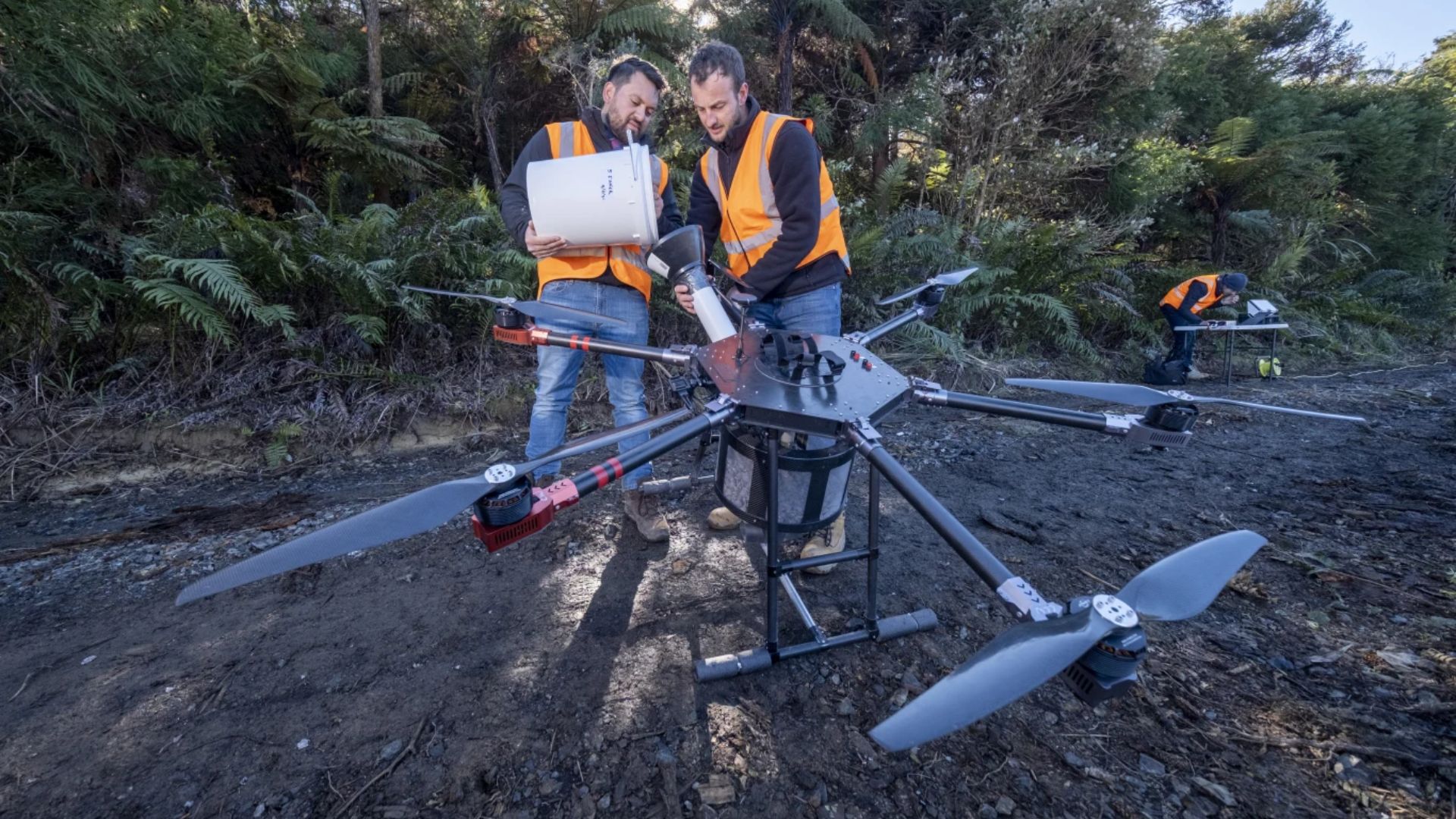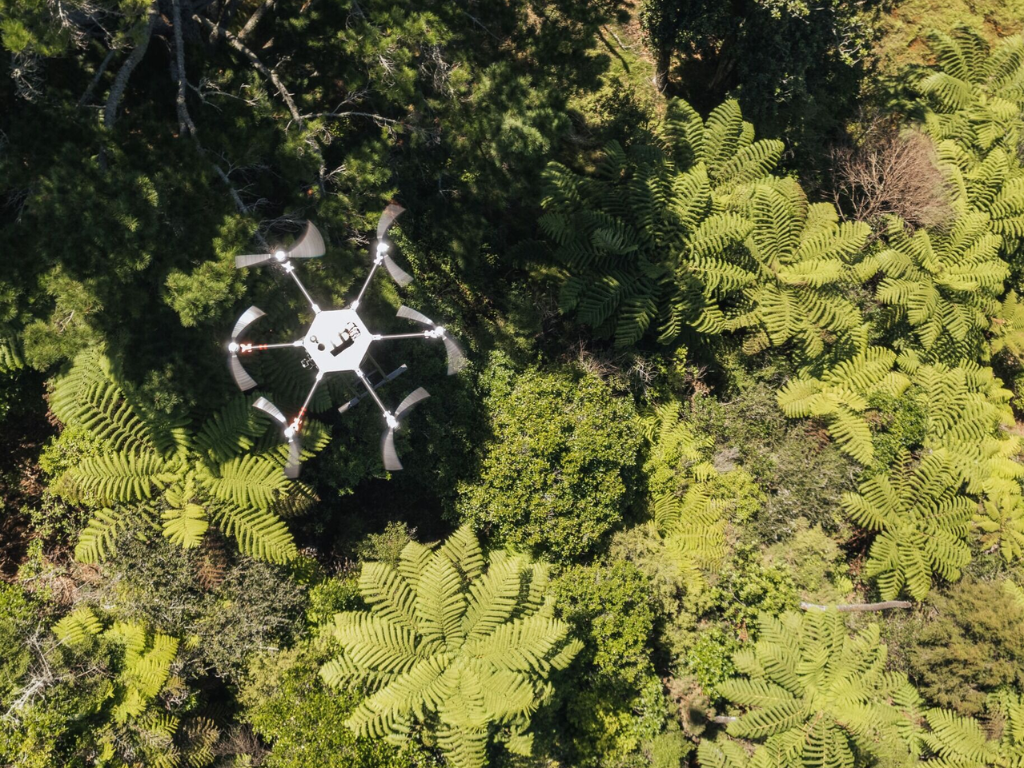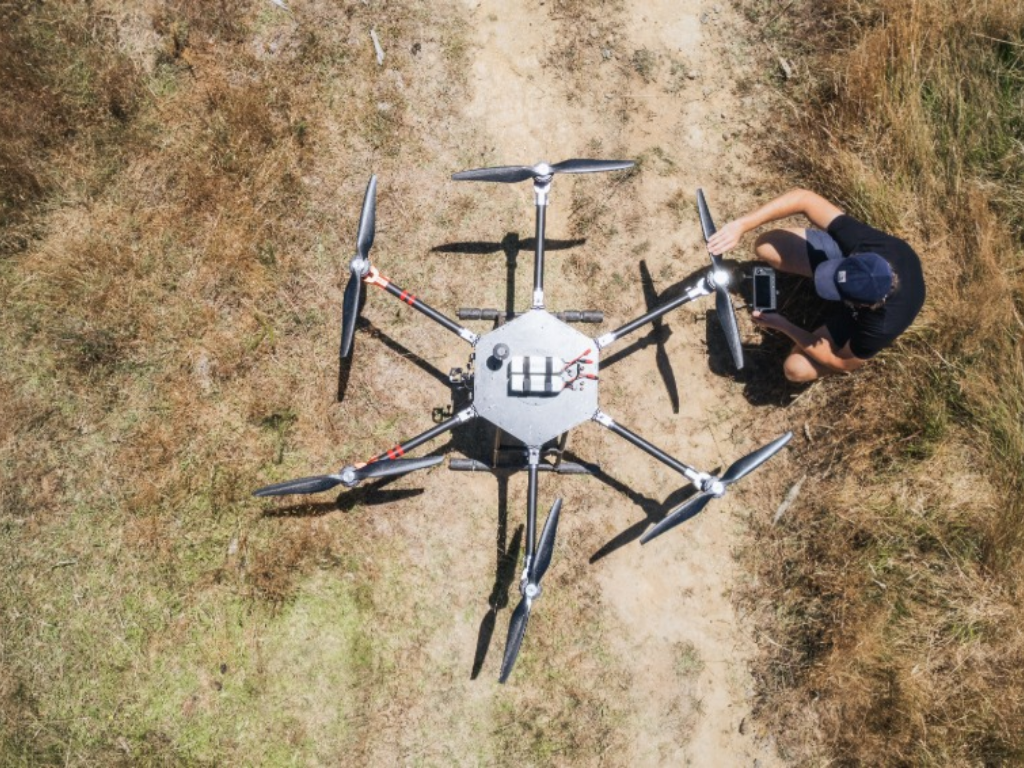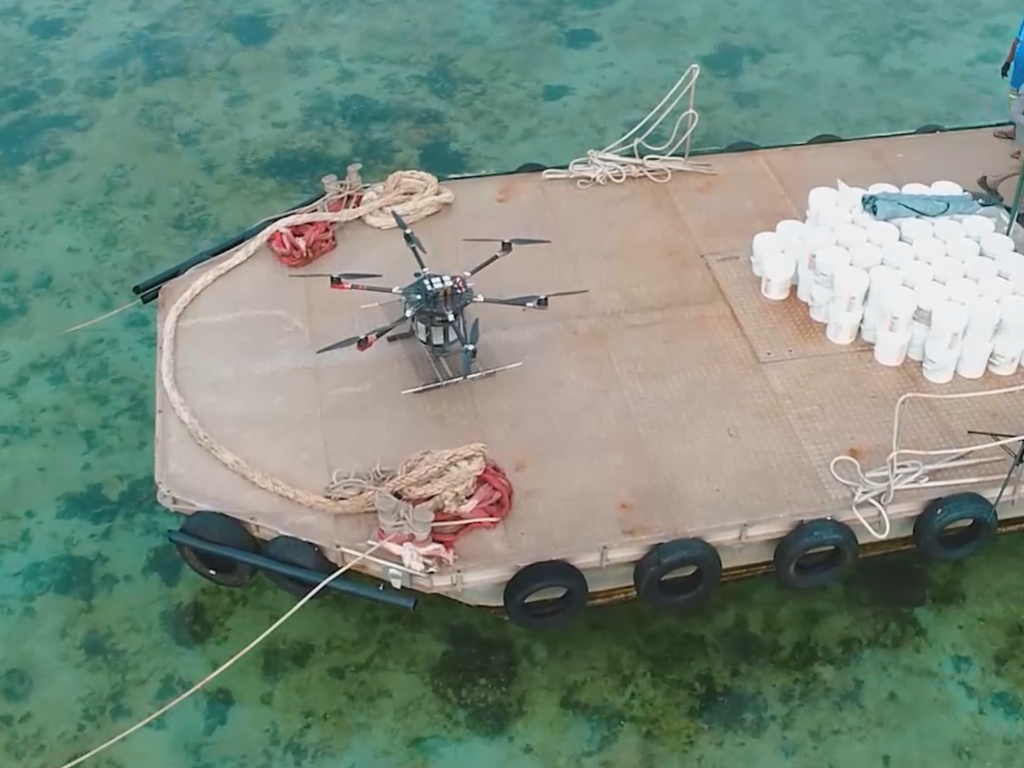Founded in true number 8 wire fashion, Envico Technologies began in an Auckland garage. Two clever mates used their expertise to turn drones into a powerful new tool for conservation – and it’s taking on the world.

Envico is a Māori tech company with a holistic approach to conservation.
Their heavy-lifting drones reach deep into remote corners to monitor and bait introduced predators. Using their custom software, the drones also drop special seed pods that grow into trees—all at the click of a laptop button.
In 2018, Cam Baker and Samuel Vye imagined an Aotearoa New Zealand where it’s normal to hear the rustling and cries of a kiwi in your backyard every night.
Today, it’s not as far-fetched as it sounds. In fact, it’s the Tauranga-based company’s guiding vision.
From garage to global
Their big leap of faith into drone-based conservation paid off in a big way in 2019. Envico was brought on to an international project in the Galapagos Islands to eradicate invasive rats.
Using two heavy-lift drones, almost 1.5 tonnes of bait was dropped on both Isla Seymour Norte and Islet Mosquera, covering more than 184 hectares in just two days.
The project succeeded, making international headlines as a world-first approach to predator control. Cam says it was proof what they were offering could be a game changer.
“There’s one undeniable thing that’s different with drone technology – there’s no pilot in the sky, and it’s all data-driven. You can run the whole operation from a laptop.”
There are also savings from safety, efficiency, and cost perspectives.

“That’s where the accuracy comes into play, and the safety aspect is where you have to decide: is it going to be a helicopter with a person in it? Or is it going to be a human scaling down that cliff? We’re giving a new alternative,” he says.
Adding to the toolbox

While predator control is the key focus in helping native species thrive, Cam believes a holistic biodiversity approach is needed.
He says while rats, stoats and possums devastate bird populations and leave our forests silent, they can also destroy our native trees and plants.
To restore native flora and attract our winged gardeners back, Envico also uses its drones to disperse seed pods across the forest floor. Created for New Zealand’s unique environments, their seed pods are made up of five to six different native seeds gathered from an area, mixed with water, clay and compost and pressed into a small ball about the size of a lolly.
In a trial in the Hūnua Ranges, they loaded 5,000 seed pods into a drone and scattered them over one acre. Ten drone flights could spread 50,000 tiny parcels in half an hour. It will be about three years before we know if the trial has worked.
As if the clever minds at Envico weren’t doing enough, they have also received funding from Predator Free 2050 Limited to develop a ground-based device, the self-resetting Spitfire, for large land holdings and remote locations.
This trap, currently being trialled, uses an automatic lure to attract rats and possums. Sensors spray the target animal with liquid toxin, which is ingested during grooming while leaving everything else untouched.
Global demand, local challenges
Since making waves internationally, the company has been busy with overseas projects, including those in the United States and French Polynesia.
Cam says conservationists globally face the same challenges as New Zealand when it comes to invasive species. They’re also more likely to adopt new approaches.
He believes New Zealand has been slower in trying new methods because of our long history with traditional tools and traps. However, countries that are earlier in their conservation journey are willing to try new things.
“They need to be resourceful in the way they apply new technologies because they’re asking for philanthropic grants. Drones are a way of achieving the impact whilst balancing the risk.

“There are a lot of other countries using Envico’s novel tools as their first choice. I do worry that if New Zealand rests on its laurels in the conservation space, we might not be the ones sitting at the table saying that we’re the best in the world at conservation,” he warns.
In the meantime, Cam says the company is content to build up its experience and knowledge overseas.
“Then we get to bring it back, and eventually, that outdated New Zealand mindset will change,” he says.

